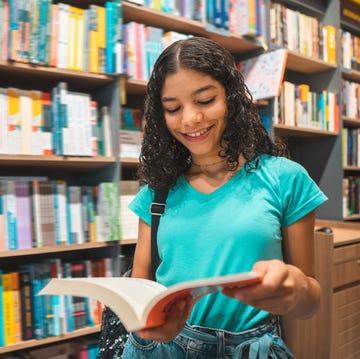When Emily Tianshi set out to confront the global water crisis, she did not need an expansive laboratory, a team of co-researchers, or multimillion dollar machines. All she needed was a garage, her $20 microscope, and her incomparable drive to effect change.
Growing up in San Diego, Emily, her younger brother Kyle, and her parents embraced adventure and innovation. Being outdoors among Torrey pine trees — the rarest pine species in North America — piqued Emily’s curiosity, as she marveled at its ability to thrive despite the dry conditions of southern California.
“I was really impressed with the tree as a whole,” she shares in a new film for HP’s Generation Impact series and as part of its #GirlsSaveTheWorld project. “I was super curious about how it was able to [flourish] in the midst of really challenging conditions.”
When she was 13 years old, Emily started her research project on the Torrey pine’s capacity to collect water and discovered that the needle surface is both hydrophilic (water-loving) and hydrophobic (water-fearing). “It enables the water to roll down the needle and for new moisture to condense,” she explains. “I was really intrigued by this alternating stripe pattern, so I created micropatterns in a fog chamber and I started testing the different ratios of hydrophilic and hydrophobic.”
“I realized that my project wasn’t just some fun garage project for myself, it actually had a really large potential to help a number of people around the world suffering from drought," she adds.
Emily entered the Broadcom MASTERS science fair and was inspired to continue developing a prototype that mimics the Torrey pine needle’s structure. In November 2019, she filed a patent for her current device, named Torrentis. In February 2022, she was published in the scientific journal Plant Ecology for her research on the Torrey pine needle's foliar water uptake.
“I’m hoping to make [the prototype] into an actual product that harvests atmospheric moisture, whether that be a standalone device or even a micropattern that can be applied to say like, tent surfaces, or clothing, and et cetera,” Emily says.
The same year she applied for Torrentis’s patent, Emily and her brother Kyle founded Clearwater Innovation, which “generates awareness of the global water crisis and on top of that, it encourages students to do garage-lab research,” she explains.
The student-run organization boasts a team of over 50 environmental ambassadors who are addressing a range of climate crises, including pollution, insufficient water systems, and the lack of filtration in the world’s industrial wastewater.
“It's hard to just exist as a kid. We have looming responsibilities of the next hundred years on our backs. I would describe myself as pretty angry just at the state of the world and how everything seems to be falling apart,” Emily shares. “In one sense, that powers me to do something about it. I like the fact that I’m always walking with fire under my feet. But on the other hand, it’s constantly burning — it’s difficult.”
“There are so many people who need more resources, and we can do something about it, we can make a tangible impact right there,” she continues. “Mother Nature is my teacher for a lot of things. It’s an inspiration as well as a cause to be fighting for.”
Leah Campano is an Associate Editor at Seventeen, where she covers pop culture, entertainment news, health, and politics. On the weekends, you can probably find her watching marathons of vintage Real Housewives episodes or searching for New York City’s best almond croissants.















